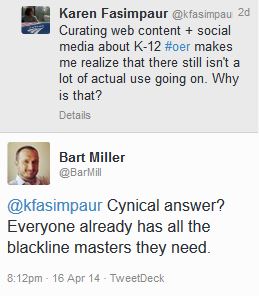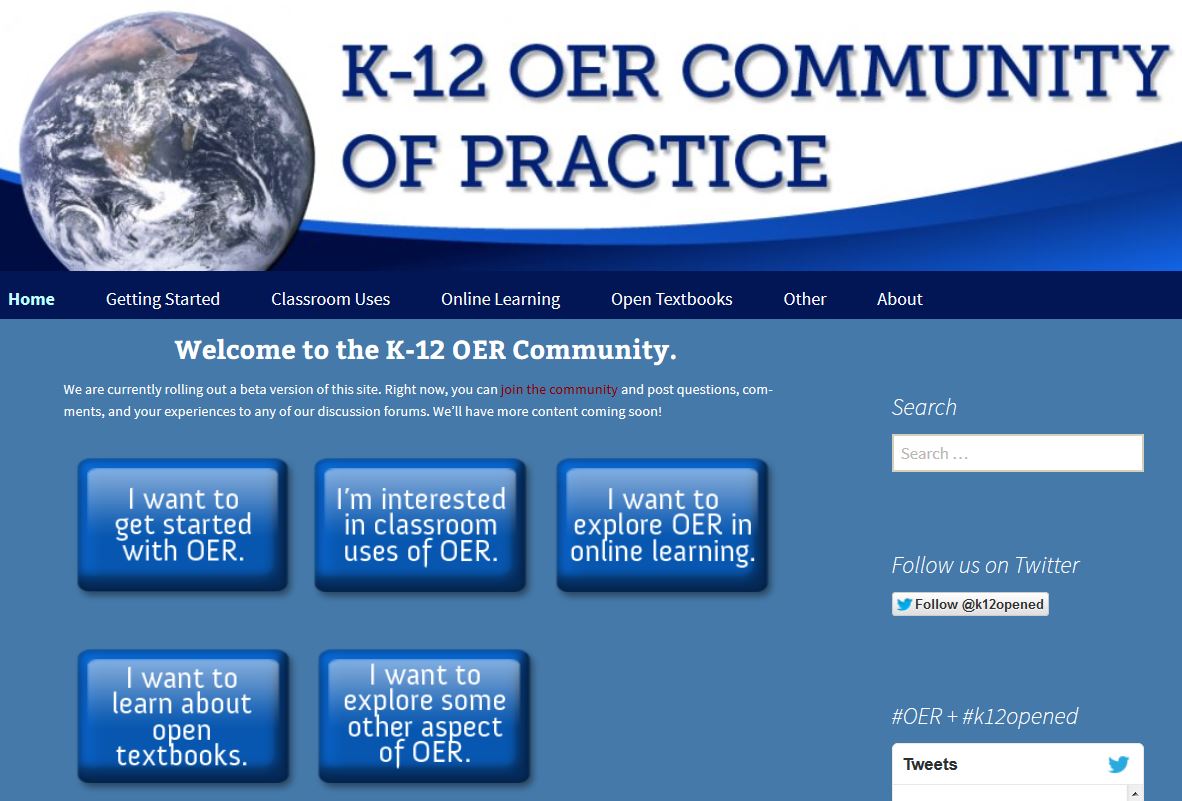A few of us have been talking about the idea of fostering cross-generational participation in cMOOCs lately, and as I think about this my mind keeps coming back to the idea of Genius Hour as a MOOC.
For those unfamiliar, the idea of Genius Hour (also sometimes called Google 20% time) is to give students some dedicated time to pursue their own passions. Whenever I think about Genius Hour, I think “Why don’t we have this for teachers too?”
So how about a MOOC where people of all ages are encouraged to identify and pursue a topic they are passionate about? It could be an inquiry project, a maker project, or something else of their choosing.
The advantages of doing this as a MOOC are:
- Taking place over a fixed period of time bounds the project and makes it more approachable. (“course”)
- Having access to many others, including hopefully some with similar passions, allows collaboration. (“massive”)
- Being in an open space allows delightfully unexpected synergies to occur. (“open”)
- Participants could do this from anywhere. (“online”)
As a learner, I would delight in participating in something like this. In fact, my head is buzzing with things I might pursue in this way.
So what do you think? Does this idea have legs? Want to start something like this?



